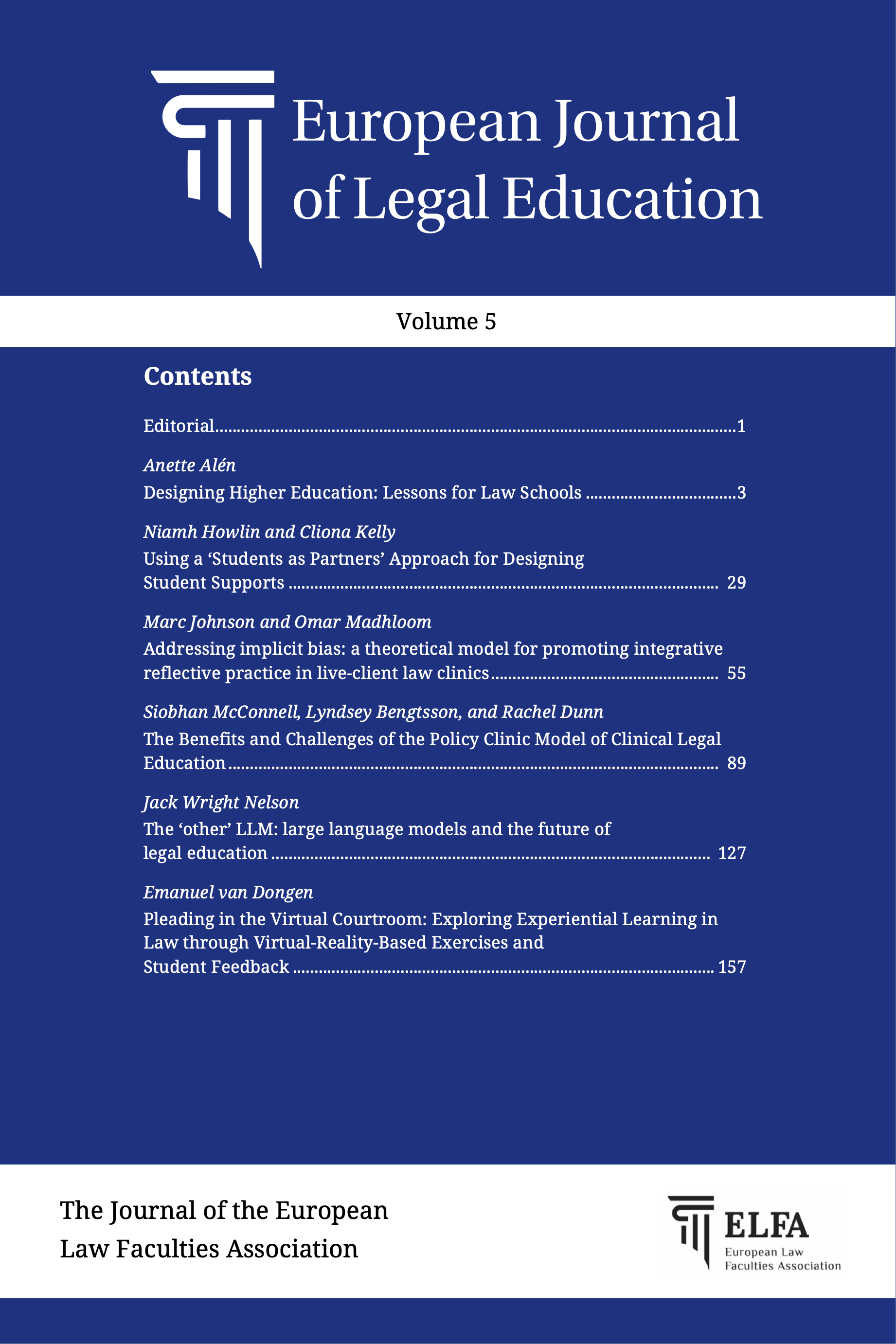Pleading in the Virtual Courtroom: Exploring Experiential Learning in Law through Virtual-Reality-Based Exercises and Student Feedback
Abstract
By using virtual-reality-based technology, Dutch law students train their pleading skills in a virtual courtroom. While watching each other’s performance, students give each other feedback by means of a specially designed feedback app. Afterwards, they can download the feedback and a recording of their performance. This creates an opportunity to practice their pleading skills and to improve their performance in the courtroom. We studied whether elevated levels of heart rate and electrodermal activity are found in connection with the virtual-reality-based exercises, which could indicate arousal and that proved to be the case, denoting the authenticity of the simulation. We also studied whether or not these virtual-reality-based exercises (positively) influence student experience and student learning by focusing on four mechanisms related to the virtual reality exercises: its value/usefulness, competence perceived by students, students’ confidence, and ultimately the role of peer feedback and students’ reflective thinking. Significant increases occurred from rest into pleading, in heart rate and electrodermal activity. The construct reflective thinking appeared to be correlated with feedback, value and self-confidence. The virtual-reality-based exercises, as an authentic task, seem to create the opportunity, impossible in real settings, to provide extra training in an authentic environment and to make feedback possible. It remains crucial to learn from feedback and to work on self-determined learning goals.

Copyright (c) 2024 European Journal of Legal Education

This work is licensed under a Creative Commons Attribution-NonCommercial-NoDerivatives 4.0 International License.


